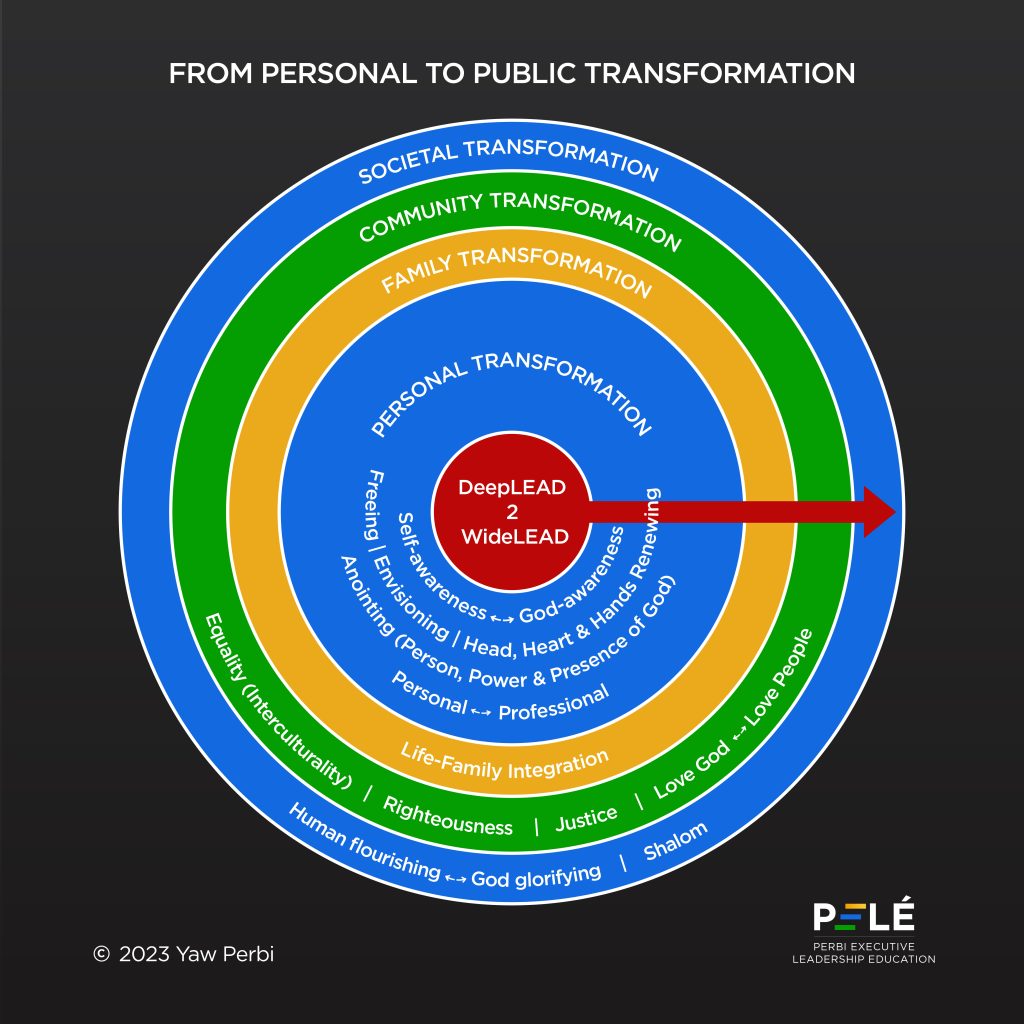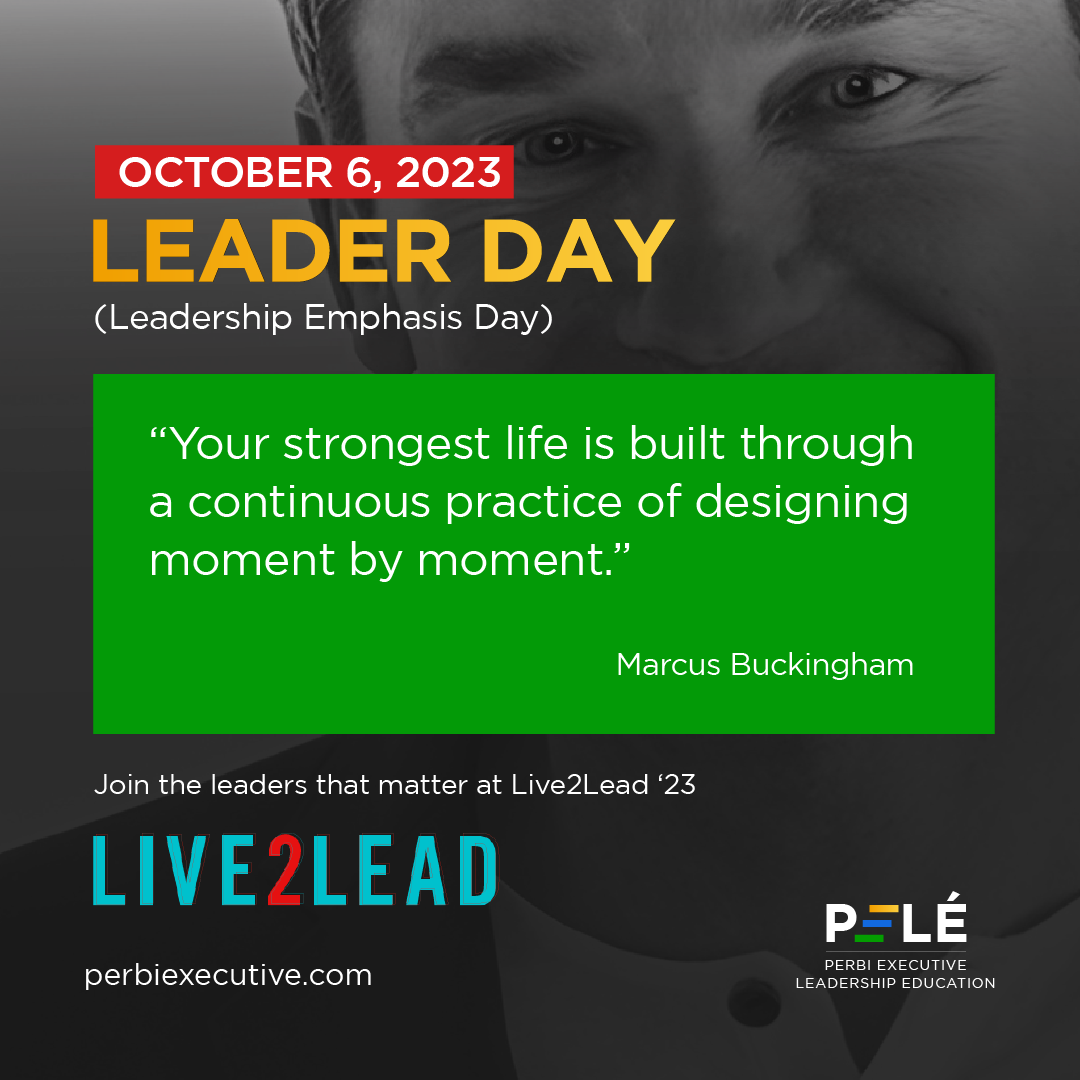
Meet Motivational Marcus Buckingham, Master of Strengths
British best-selling book-writer and arguably “the world’s most prominent researcher on strengths, leadership and high-performance at work,” Marcus Wilfrid Buckingham, is a remarkable individual. If you’ve ever heard of Strengthsfinder, or better still, taken the phenomenal assessment, behold the co-genius behind it! Renowned for his outstanding contributions to the world of work and the fields of technology, innovation, and philanthropy, Buckingham is a global researcher and New York Times best-selling author focused on unlocking strengths, increasing performance, and pioneering the future of how people work. He is the author of two of the best-selling business books of all time, First, Break All the Rules (1999), and Now, Discover Your Strengths (2001), and his tenth book, Love + Work (Harvard Business Review Press, 2022) is a Wall Street Journal bestseller and has been heralded by Forbes as one of the ten must-reads for career and leadership. Marcus’ 2019 Harvard Business Review (HBR) cover article, “The Feedback Fallacy,” was selected by HBR as one of the most influential articles of the last 100 years, and Marcus’ strengths assessments have been taken by over 10 million people worldwide.
Born 1966 in Buckinghamshire in Britain, Marcus displayed an innate curiosity and passion for technology from a young age. After completing his formal education at Cambridge in computer science, Marcus co-founded a startup in the late 1990s that revolutionized the way people interacted with online content. The company’s groundbreaking platform garnered widespread attention and accolades, propelling Marcus into the limelight as a visionary tech entrepreneur. Throughout his career, Marcus remained at the forefront of technological advancements, leading numerous successful ventures and launching groundbreaking products that transformed industries. His dedication to innovation and his ability to anticipate market trends earned him a reputation as one of the foremost technology pioneers of his time.
Beyond his professional accomplishments, Marcus Buckingham has always been deeply committed to making a positive impact on society. He is renowned for his philanthropic efforts, actively supporting various causes related to education, healthcare, and environmental sustainability. Marcus firmly believes in using his wealth and influence to drive positive change and has donated generously to charities and initiatives around the globe. In addition to his philanthropy, Marcus has been an advocate for promoting diversity and inclusivity within the tech industry.
In addition to the self-published short film series Trombone Player Wanted, Buckingham has made numerous television appearances on US television networks and cable channels including The View on ABC, I Want to Work for Diddy on VH1, The Oprah Winfrey Show on syndication, Good Morning America on ABC and The Jane Pauley Show. Marcus Wilfrid Buckingham the English research-based motivational speaker and business consultant is based in California, USA.
BUCKINGHAM LIVE AT MAXWELL’S LIVE2LEAD ANNUAL CONFERENCE 2023
Marcus Buckingham speaks at this year’s annual Live2Lead Ghana, a brainchild of Dr. John C. Maxwell. As Perbi Executive Leadership Education (PELE), we have been privileged to host Live2Lead on both sides of the Atlantic, in Montreal, Canada as well as in Accra, Ghana. We are absolutely convinced that leadership is taught; not just caught. Join John and the stellar faculty he’s put together for this year’s Live2Lead conference and up your leadership game.
This year, together with our partners in Ghana, we’ve chosen the theme, “Leading for Legacy.” Here’s a taste of Marcus Buckingham’s take on legacy: “Your strongest life is built through a continuous practice of designing moment by moment.” Legacy doesn’t just happen; it’s by intentional, intelligent design. Come and find out how, in-person at the Ecobank Ghana Headquarters in Accra, or online, wherever in the world you might be!
October 6 is Leader Day this year. Register now through this link. Impress upon your organization to join the Leadership Emphasis Day/Leader Day movement that will transform society by becoming a Patron of Live2Lead. A Patron company or individual is one that sends at least 10 leaders to Live2Lead. Together we can change our world for the better! Yes, we can!
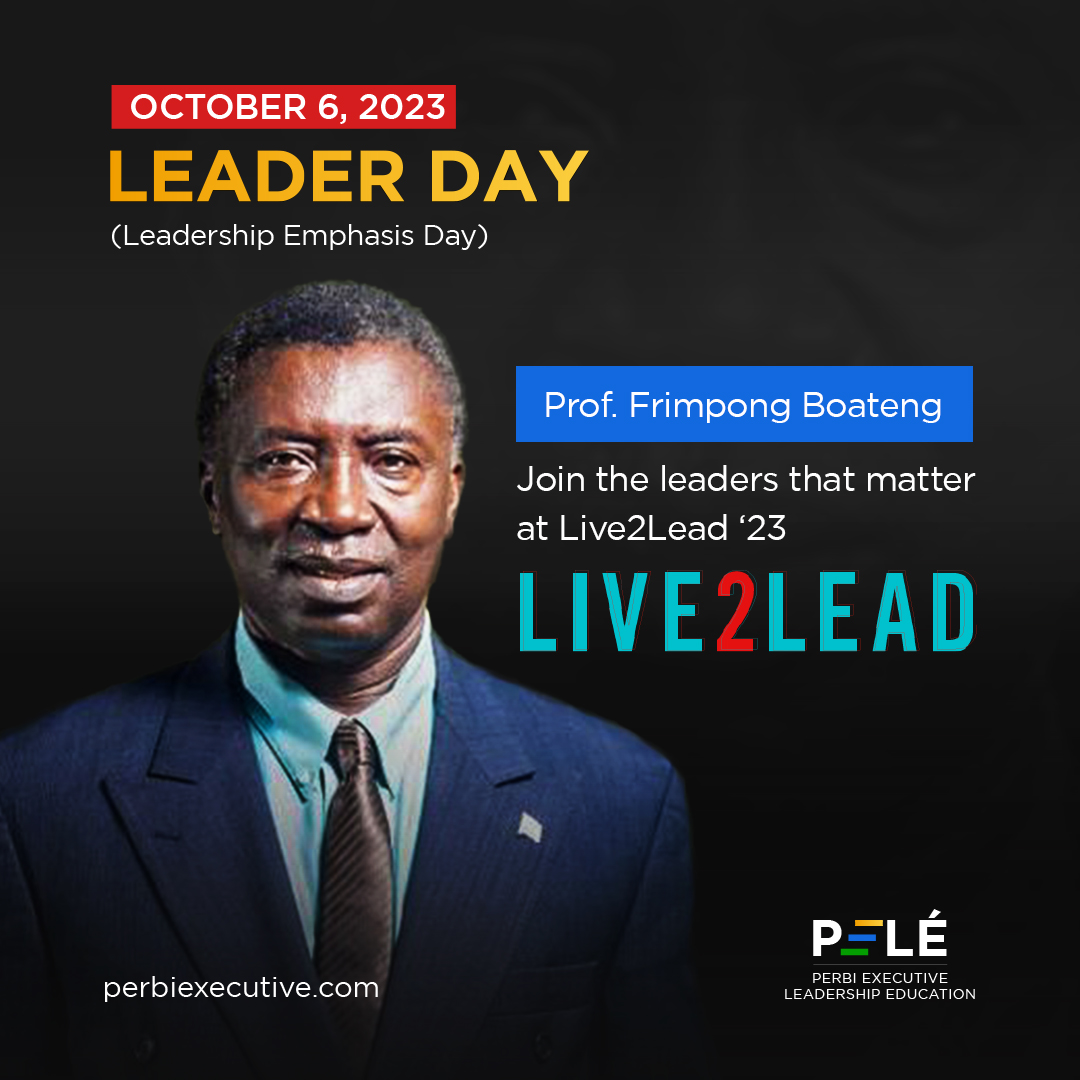
The Father of Open Heart Surgery Opens His Heart at Live2Lead 2023
Professor Kwabena Frimpong-Boateng is an astute German-trained Ghanaian cardiothoracic surgeon and founder of the National Cardiothoracic Centre whose recent foray into Ghanaian politics nearly marred his otherwise stellar legacy. He is also the Founder and President of the Ghana Heart Foundation, erstwhile Chief Executive Officer of Ghana’s premier teaching hospital (the Korle Bu Teaching Hospital, in Accra) and immediate past Minister of Environment, Science, Technology and Innovation for the Republic of Ghana (2017-2021). He has been a Fellow of the Ghana Academy of Arts and Sciences since December 2002.
A STRING OF FIRSTS
The best leaders lead from the power of their life stories, positive and otherwise. Even before Kwabena Frimpong-Boateng would be born, his father Kofi Frimpong died from chest/heart injuries sustained from a road traffic accident. Kwabena was barely four months from birth. It comes as no surprise then that although his first love was engineering, due to his affinity for physics and mathematics while he attended Sekondi College in the Western Region of Ghana, he later would later go the doctor route at university. As if destiny was calling, after the University of Ghana Medical School and housemanship, he was offered a scholarship to study general, cardiothoracic and vascular surgery in Germany. As Frimpong-Boateng figured he could help people with heart situations like his late father, he took the opportunity to sharpen his craft and deepen his calling at the Hannover Medical University in Hannover.
So forty years ago, in 1983, Kwabena Frimpong-Boateng and his team of professors did their first heart transplant on a human being and then performed his first transplant as the lead surgeon in October 1985. This made him the first Black doctor to perform a heart transplant, earning him the nickname the “Black Pearl.”
At the time, he was recognized worldwide for this feat and as if that was not enough, in November 1988, three years later, he struck another first: the first heart-lung transplantation in Hannover. After finishing his post-graduate studies, despite being in very high demand in Europe, he chose to return to the land of his birth to practise as Ghana’s first locally based cardiothoracic surgeon. Frimpong-Boateng performed the first open-heart surgery in Ghana using the heart-lung-machine.
Even away from the hospital, as a farmer Frimpong-Boateng established the first ostrich farm in Ghana, in the village of Dedukope, in the Volta Region of Ghana.
SPEAKING OF LEGACY
Translating his personal success into societal significance, in 1989 he set up the National Cardiothoracic Centre at the Korle Bu Teaching Hospital and was commissioned in 1992. There were no cardiothoracic surgery facilities in the country at the time and this was really avant garde for a country still struggling with primary health care issues such as mosquito-bourne Malaria and childhood vaccinations. Today, people head to the centre from all over the continent for cardiothoracic attention and is now recognised by the West African College of Surgeons to train heart surgeons, cardiologists, cardiac anaesthetists, operating room nurses, intensive care nurses, cardiac technicians, and other cardiothoracic technicians. As a practicing Christian, he has said that his work on the foundation of the National Cardiothoracic Centre was God’s purpose in his life.
One of the greatest way to pass on legacy is by teaching others. Frimpong-Boateng joined the University of Ghana Medical School as a lecturer in 2000 and was promoted associate professor the same year. He was made a full professor in 2002. He also served as the head of the Department of Surgery at the University of Ghana Medical School, prior to his appointment as the Chief Executive of the Korle-Bu Teaching Hospital in 2002. The Ghana Heart Foundation, which he also founded, raises funds to pay for heart surgery for some indigent Ghanaians who cannot afford the cost of such specialized surgery.
Again, he has done well, in terms of passing on legacy, by authoring a couple of biographical books, Deep Down my Heart: A History of Cardiothoracic Surgery in Ghana and Taming the Monster, a treatise on managing Ghana’s behemothic premier teaching hospital.
In March 2006, Prof. Frimpong-Boateng unsuccessfully sought nomination as the candidate of the New Patriotic Party (NPP) for the December 2008 national presidential elections. Regardless of his results, he declared he was still concerned with political issues in relation to education and health problems and would later become a Minister of State. Yet he regrets that political corruption in Ghana is too much and opines that politicians are not taking social priorities into account, especially the need for technology. His foray into the deep and often turbulent waters of politics, especially as chairman of the inter-ministerial committee on illegal mining in the country, nearly marred his enviable legacy of pioneering and impactful lifework. In a recent interview with the Africa Watch magazine, he boldly declared, “Impunity rules in Ghana.”
The erudite professor has had several local and international awards over the last four decades, including two honorary doctorates. Frimpong-Boateng and his wife, Agnes, have five children, some of whom are doctors also.
PROF. FRIMPONG-BOATENG AT JOHN MAXWELL’S LIVE2LEAD ANNUAL CONFERENCE 2023
The good professor speaks at this year’s annual live2lead Ghana, a brainchild of Dr. John C. Maxwell. As Perbi Executive Leadership Education (PELE), we have been privileged to host Live2Lead on both sides of the Atlantic, in Montreal, Canada as well as in Accra, Ghana. We are absolutely convinced that leadership is taught; not just caught. Join John and the stellar faculty he’s put together for this year’s Live2Lead conference and up your leadership game.
This year, together with our partners in Ghana, we’ve chosen the theme, “Leading for Legacy.” Speaking of legacy, in the said interview with the Africa Watch magazine, Prof. Frimpong-Boateng said, “Life is not all about fame and money, but more importantly, what one can do to help others.” He also recently wrote An Open Letter to Anybody Who Wants to be President of Ghana in 2025. Among other things, words that bordered along legacy were the following: “…the success of true leadership is measured by what extent the people can be mobilized to lead independent lives: to feed, shelter, clothe, heal, and defend themselves, and also produce tools, implements, spare parts and machines they require for daily living, so that if for one reason or the other ships and airplanes are unable to access the country the citizens can stand on their own and survive.” Come and find out how to truly lead successfully, in-person at the Ecobank Ghana Headquarters in Accra, or online, wherever in the world you might be!
October 6 is Leader Day this year. Register now through this link. Impress upon your organization to join the Leadership Emphasis Day/Leader Day movement that will transform society by becoming a Patron of Live2Lead. A Patron company or individual is one that sends at least 10 leaders to Live2Lead. Together we can change our world for the better! Yes we can!
Register HERE, NOW.
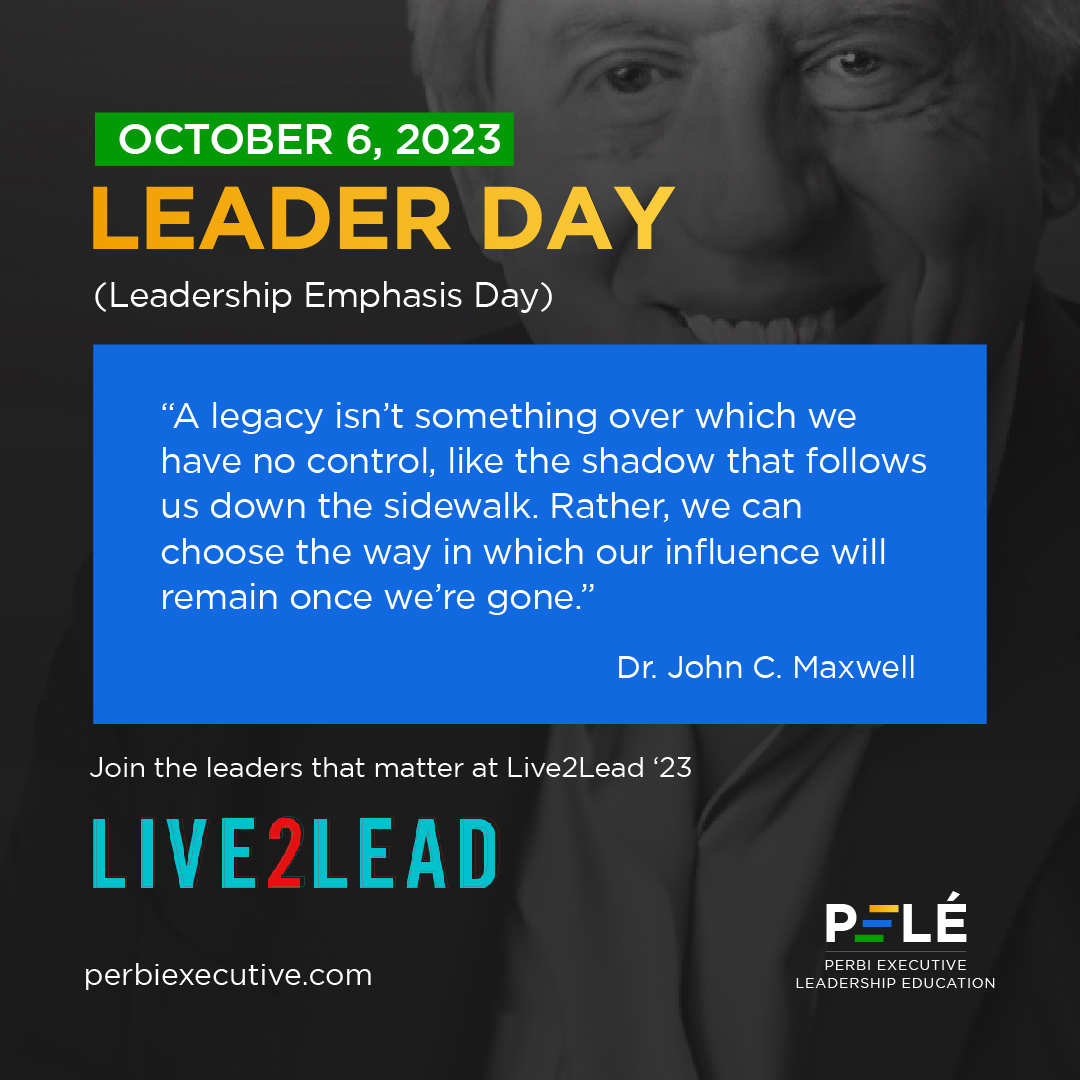
Meet Mentor-in-Chief, Dr. John C. Maxwell
No single individual has influenced leadership paradigms and praxes in the last four decades like Dr. John C. Maxwell. One would have to convincingly argue otherwise with a long list of millions of people on every continent of the planet whose patronage has inadvertently crowned Maxwell a #1 New York Times bestselling author, coach, and speaker multiple times over. With more than 30 million books sold, John has been identified as the #1 leader in business by the American Management Association® and as the world’s most influential leadership expert by Business Insider and Inc. magazines.
Dr. Maxwell has also received the Horatio Alger Award, as well as the Mother Teresa Prize for Global Peace and Leadership from the Luminary Leadership Network. His organizations—The John Maxwell Company, The John Maxwell Team, EQUIP, and the John Maxwell Leadership Foundation—have trained millions of leaders from every nation in the world.
In the late 1990s, The HuD Group, which we are proudly affiliated with, started understudying and teaching his opus magnus, The 21 Irrefutable Laws of Leadership, and hasn’t turned back since. At the Perbi Executive Leadership Education (PELE) company, our Principal and a number of our coaches are certified Maxwell coaches, speakers, trainers on the worldwide John Maxwell Team (JMT).
MAXWELL’S LIVE2LEAD ANNUAL CONFERENCE
The annual Live2Lead conference is John’s brainchild, and he always opens and closes, with other phenomenal faculty sandwiched in between. As PELE, we have been privileged to host it on both sides of the Atlantic, in Montreal, Canada as well as in Accra, Ghana. We are absolutely convinced that leadership is taught; not just caught. Join John and the stellar faculty he’s put together for this year’s Live2Lead conference and up your leadership game.
This year, together with our partners in Ghana we’ve chosen the theme, Leading for Legacy. Here’s John’s take on it: “A legacy isn’t something over which we have no control, like the shadow that follows us down the sidewalk. Rather, we can choose the way in which our influence will remain once we’re gone.” Come and find out how!
Register now through this link. Impress upon your organization to join the Leadership Emphasis Day/Leader Day movement that will transform society by becoming a Patron of Live2Lead. A Patron company or individual is one that sends at least 10 leaders to Live2Lead. Together we can change our world for the better! Yes we can!
Register HERE, NOW.
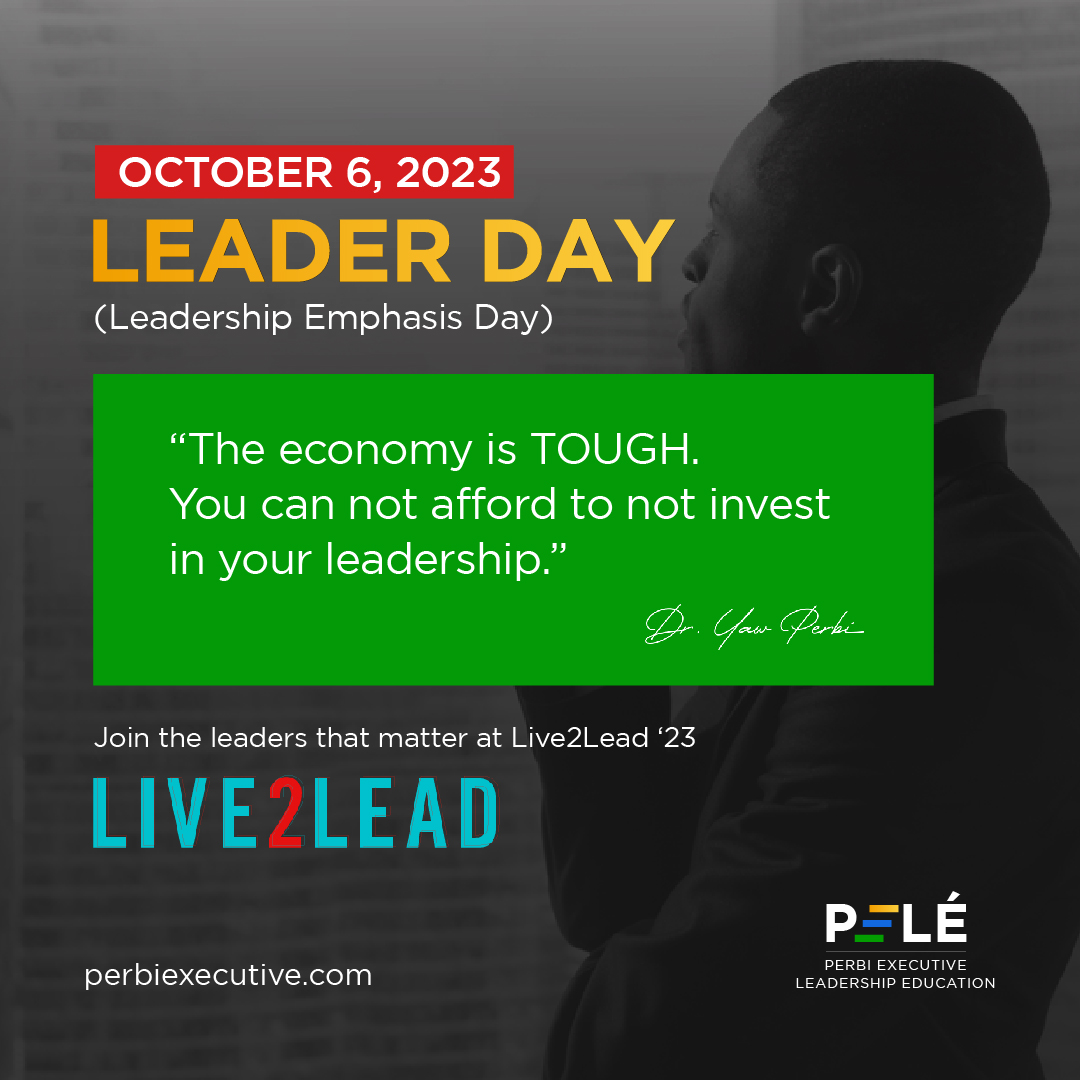
Live2Lead 2023: Leader Day Comes Again This Year.
There was recently a humorous corporate piece where the smart CFO said to the CEO, “We can’t afford to invest all this money developing our leaders. What if they leave?”
To which the wiser CEO replied, rather curtly, “What if we don’t invest in our leaders and they stay?”
You would think that “because the economy is tough let’s hold off the ‘luxury’ of leadership development” yet the irony is that precisely because the economy is tough you cannot afford not to grow your leadership to overcome the challenge and soar to new heights. What if the economy isn’t going to get better anytime soon. Will you survive? How will you survive, let alone thrive, if you don’t get better than you are now and better than the economy you live in?
THE FRUSTRATION LIVES ON, BUT SO DOES THE DREAM
Last year, my frustration was that “there is a day dedicated to almost every cause under the sun and pretty much each of the Sustainable Development Goals (SDGs)—women’s day, water day, literacy day, friendship day, founders’ day … even toilet day. Yet the one thing that causes each of these matters to rise or fall has no such day dedicated to it to elevate and emphasize it. Even then, is a day enough? Surely not; but it is a good catalyst for the remaining three hundred and sixty four (or five) days,” I said.
Last year, I shared a dream that “the first Friday of October each year will become universally known as LEADER DAY.” It bears repeating that, “There is nothing special about the first Friday in October per se except that consistently for about a decade now, our mentor and leadership expert, John C. Maxwell, has been gathering some of the best leadership minds and hearts on the planet to speak to the issue, and we might as well leverage the opportunity rather than reinvent the wheel. Live2Lead is the name of that event. The name says it all, that’s our purpose on earth: We live to lead.”
We held a successful event last year, only online, looking at the theme “Leading with Integrity & Inspiring Hope, for the Common Good.” To say Patrick Awuah (Founder & CEO, Ashesi University), Patricia Obo-Nai (CEO, Vodafone), James Ebo Whyte (CEO, Roverman Productions), Gwen Gyimah Addo (CEO, The Hair Senta), and Kathleen Addo (Chairperson, National Council for Civic Education) were phenomenal resource persons is an understatement. We will bring you snippets, in text and video, of what they shared to remind and stimulate you towards integrity and hope for your leadership.
LEGACY THIS TIME
This year, two more John C. Maxwell-trained and certified colleagues in Ghana have joined our trio of 2022 to pour more fire into the dream that ultimately the first Friday of October each year will become universally known as LEADER DAY. We have settled on ‘Leadership Legacy’ as the theme and will soon be outdooring the slate of speakers, including my celebrated German-trained professor of Cardiosurgery when I was a medical student at the University of Ghana Medical School. We’ve got to live to lead today, for the sake of lives tomorrow. That’s legacy.
You and I know too well the dearth of leadership in our country and around the world, whose ripple effect is the tough economic situation we find ourselves in, and more. We hope to double last year’s number of attendees–this time both online and in-person at the Ecobank Ghana headquarters auditorium–to benefit from the LIVE simulcast from Atlanta and the local content for our context, sandwiching the global feed.
CONCLUSION
When leaders get better, everything and everyone gets better too. There is no benefit of not investing in your leadership to get better because the economy is tough. Ironically, the only way out is for you and everyone else to invest in our leadership development to get better. That is the tide the raises all the boats with it, including the economy. In the words of the charming African-American poet Maya Angelou, “Do the best you can until you know better. Then when you know better, do better.” Mark down Leader Day 2023, October 6, to know better, get better and do better.
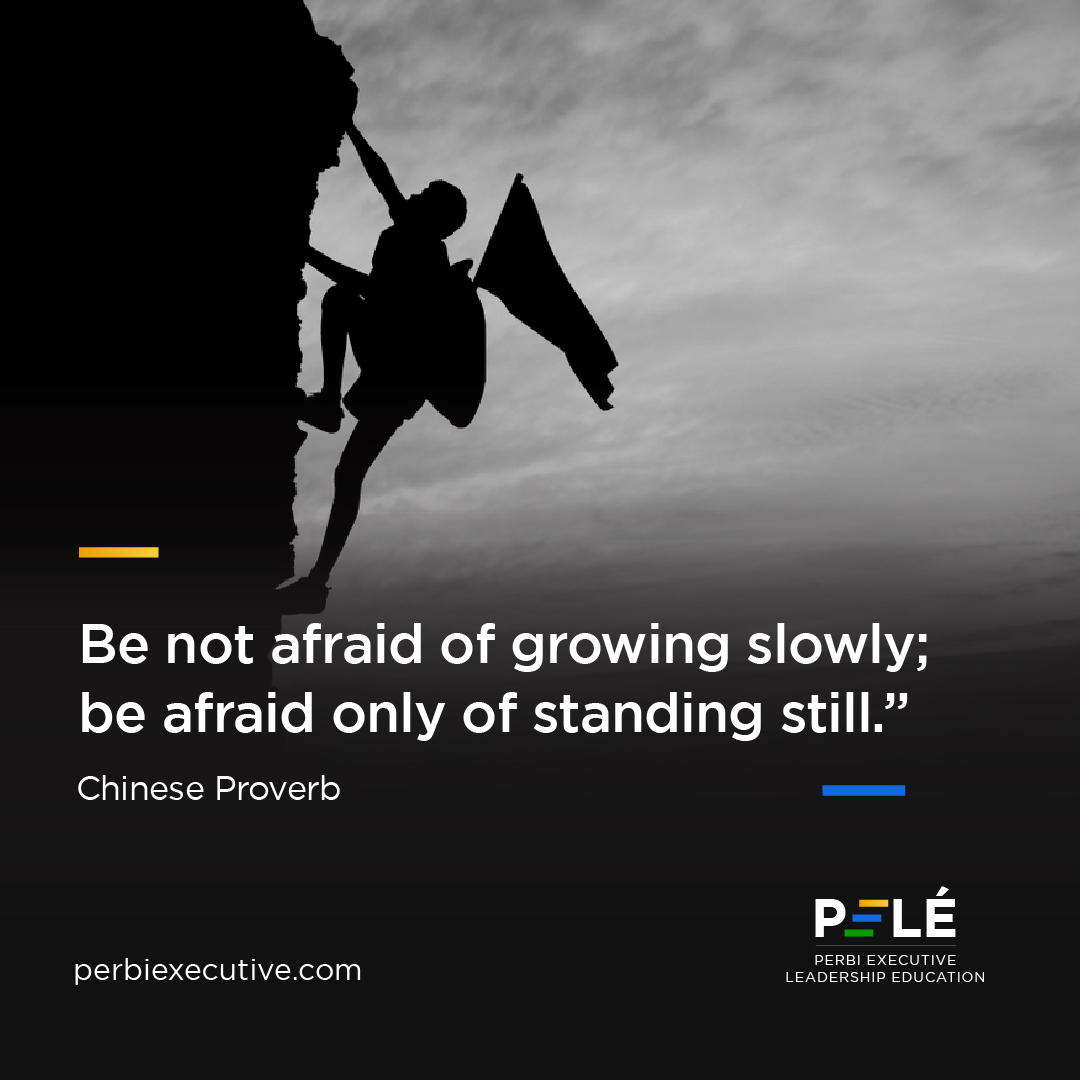
Big Events are Overrated, Trust Process.
“Trust the process” has become cliché. Yet many don’t understand it, let alone mean it. In fact, most people are more attracted to big events and striking occasions but the aim of this article is to show that these are overrated. We are attracted to the big bang, amazing testimonies, the one time lottery win, that miracle… all of which are good but in the long term, those are not the things that sustain societies, grow businesses or deeply transform us long term. It is process, process, process.
MENTORING AND THE LAW OF PROCESS THEN
These thoughts have been coming to mind over the last couple of weeks because of two recent incidents, one in the church and one in the corporate setting. Regarding the former, l led part of an annual discipleship capacity building workshop for my local church at the University of Ghana. Discipleship is the word Christians use for spiritual mentorship. I inquired what they would do if they were God and came on Earth in the person of Jesus Christ (as Christians believe) to do an effectual job of changing the world. What would they do?
Well, many would go head-on and prioritize filling stadia with people (and there were stadia in the time of Jesus) or fill the plains like where he fed 5,000 then 4,000 (not counting women and children) day after day, as the rule not the exception. Some would constantly go to the royal palace and do some leadership workshops for Herod and his ilk etc. But the Rabbi did none of that routinely. First of all, He took 30 years to prepare Himself from conception through childhood to turbulent youth years to adulthood. He came as a foetus, endured nine months of pregnancy and went through a 30-year process of learning–of obeying His parents, of apprenticing to be a carpenter like His earthly dad, of learning the Torah like other children of His day etc. Yes, all of that. Process.
Eventually when it was time to launch His ministry at 30 (phew! finally!) what does He do? Nothing prime-time TV worthy (oh, of course apart from His spectacular baptism). The baptism in the Jordan by Cousin John was a big event. But the rest, again, process. After all-night prayer, He goes around town and handpicks 12 people, just a dozen, and decides to walk with them, life-on-life, for three-and-a-half years. As Professor Robert Coleman points out in his magnum opus, His method of training was His life itself, it wasn’t just “read this book.” No! Process, day by day by day by day by day for nearly as long as we have to wait for the next Olympics or World Cup tournament.
Only a few years down the line these ordinary fisherfolk so got Him that each was martyred for what they had come to see and taste and know. In a few years, it was reported of His followers, “the people that have turned the world upside down.” Two thousand years later, what do we see? There are 2. 3 billion Christ followers on every continent and in every country and geopolitical space today. Yet the original leader Himself never travelled beyond 50-100 km radius of where he was born. The farthest he went to was Egypt, in His childhood, when his family temporarily migrated to Africa as refugees. Why this impact? How? The law of process.
He knew if he took 12, focused on the few and worked on them life-on-life for years, that the few would bring another few who would bring a few more, who would mentor a few, who would bring a few and over years this kind of impact would happen. Deep transformation doesn’t happen in rows, like we sit in events, but in circles. It happens in circles, small groups, day by day, week after week, month after month.
MENTORING AND THE LAW OF PROCESS NOW
At the said workshop at the University of Ghana, I showed the attendees a simulation: if one person who comes has a relationship with the Lord Jesus Christ decides to disciple another person, just one person per year, life on life, week by week, studying scriptures, eating together, praying together, travelling to places together etc. Just a person a year. At the end of the first year, there would be only two disciples of Jesus. The original then instructs the ‘graduating’ disciple to do same for another, just as Paul admonished Timothy: “And the things that you have heard from me among many witnesses, commit these to faithful men who will be able to teach others also” (2 Timothy 2:2 , NKJV).
At the end of the second year what happens? You still mentor a second person so there are two of you. But the original person you discipled in the first year has now also discipled somebody else, thus there are four of you. First year it was just addition, the second year there was multiplication. By the third year and onwards, there isn’t just multiplication but exponential multiplication. And if it continues like that, just one person each annually, by the end of the tenth year, you would be over a 1000 people (quantitatively impressive) deeply transformed (qualitatively impactful). You’ve gotten the mass that you wanted, yes, a thousand people you would have wanted to fill an auditorium with to impact all at once (but would leave the program and achieve nothing). Now you’ve gotten that same 1,000 people after a decade but they would be solid movers and shaker.. It may seem inefficient at first but it is deeply effective and with time it becomes powerfully efficient as well. Within 10 years, you would have a 1000 people who are deeply transformed and now you also have the numbers. That’s the law of process.
MONEY AND THE LAW OF PROCESS NOW & THEN
Then, about the training for the core leadership team at Perbi Cubs we talked about how leadership is built day in and day out and not in a day. John Maxwell talks about that as the fourth ‘irrefutable law’ in his New York bestselling book, The 21 Irrefutable Laws of Leadership. I have been teaching this book for over 20 years now. “Leadership is built daily and not in a day,” Dr. Maxwell says. So is anything else of enduring value. Daily; not in a day.
To illustrate, I actually showed the EdTech leaders an investment chart I created a couple of decades ago in my book Financial Whizzdom, comparing a youth who starts investing at 20 and his uncle who starts investing at 30. Both invest the same amount (say GHS 2,000) at the same annual interest rate of 10% p.a. The lad invests for 10 years, stops investing but leaves the money to keep growing. The uncle who started at 30 doesn’t stop and continues putting in GHS, 2,000 every year till the age of 65. At the age of 65, this boy who started and stopped and just let his money keep growing would have more money, about GHS 200,000 more, than his uncle. All because the young man started earlier and got the Law of Process working for him a whole decade prior.
CONCLUSION
Process works. It gives sure and deep and lasting results. Don’t skip processes. Build your leadership daily. Build your spiritual life daily. Build your health daily. Build your intellectual capacity with a little reading everyday rather than just binging once or twice a year. Something you are doing everyday is determining your future. Or as Tag Short put it, “the secret of success is found in your daily agenda.” A related Chinese proverb really intrigues me. Here’s my paraphrase: “Do not fear growing slowly, what you should fear is standing still, not growing at all.” Trust the process. Truly, trust process. Process would beat big events and one-time shiny experiences any day, all day, long-term. It’s a timeless, universal truth. Trust it.
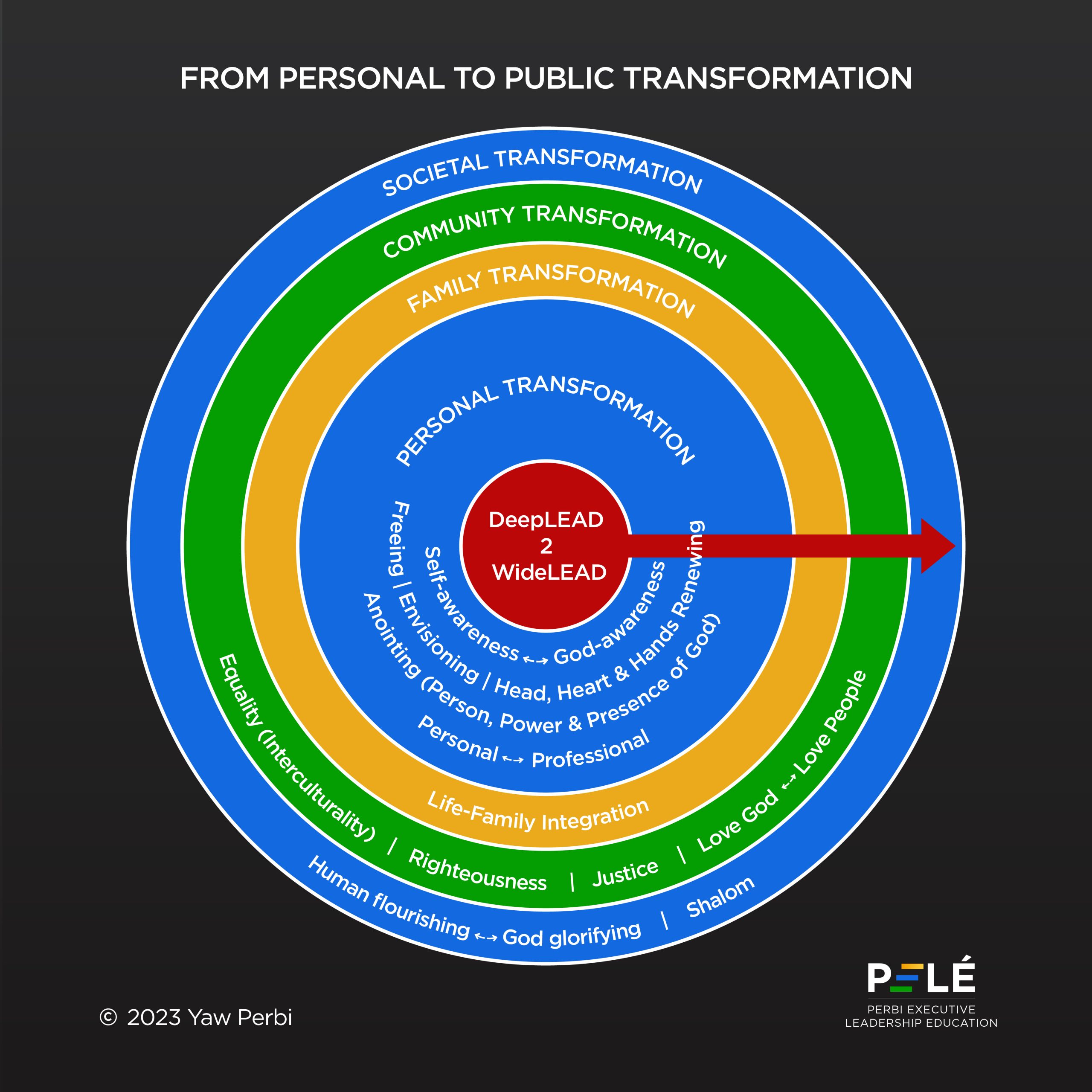
The Throes & Trajectory of Transformational Impact
Over 500 American-Africans—my way of describing Africans who have more recently in the last one or two generations become Americans—gathered in no less a place than the Lord Baltimore Hotel in the downtown of that Charm City of Maryland which bears the same name as the hotel. One of the interesting trivia that decorated the elevators at the hotel is that Martin Luther King Jnr. held his April 2, 1965 press conference at this same historic venue.
The theme chosen for this biannual national conference of these American-African professionals known as the African Christian Fellowship (ACF) USA was Transformational Impact. Yours truly was one of two keynote speakers, who both happened to be medical doctors who hailed from West Africa, Ghana and Nigeria specifically.
While my first keynote was an hour-long and had seven points about transformational impact—text, tales, theology, tracks, teleological definition, theory and tenets—I only seek to share the crux of the key note with you in this short write-up. I shall share the teleological definition of transformational impact which I came up with after reading many others online and found none fully satisfying my take on the subject. And then I’ll share my theory of change, theory of how transformational impact actually happens.
Definition of Transformational Impact
Transformational Impact is the process of deeply internally changing in one’s being and doing in order to have, or participate in an attempt at, external profound, authentic and sustainable positive change. If you are anything like me, when you hear transformational impact you’re thinking about doing some thing to change something or someplace or someone. The paradigm shift in this definition is that transformational impact has two points of change—first, of the person seeking an intervention and then of the circumstance or situation. That brings us to the theory of change.
Theory behind Transformational Impact
Why is this definition like this and super important? Because we cannot deeply change anything without being deeply changed ourselves first. Here is the theory of change that goes with the issue of transformational impact: Only deeply transformed leaders can deeply, authentically and sustainably transform society.
This is not the first time I’ve written on this. I remember bringing it up when there was a massive trending in Twittersphere of the hashtag #fixthecountry in a certain West African state and a counter #fixyourself that was attempted to quench the fire. In the article, I share why both camps were wrong. It goes back to the theory behind transformational impact.
There cannot possibly be authentic transformation when the actor isn’t themselves in sync with what they’re acting upon. Besides, if there isn’t transformation of the protagonist themselves, their intervention wouldn’t last long—either their work will unravel with time or they themselves will be marred in no time.
You might now understand why this definition is important. One’s identity and character (being) and actions and activities (doing) first need below-the-surface transforming internally in a deep manner if the outward impact they seek will also be profound, real/authentic and last.
In fact, without going too much into the theology of transformational impact, let me state that God first shapes the people through whom He wants to shape the world so that they can reflect Him and reform His world by His shaping—in His image and likeness—to His glory.
Widening Circles of Transformational Impact
Above is an attempt to illustrate how it’s a DeepLEAD at the core which leads to WideLEAD, from personal transformation to public transformation. We can’t go wrong if it’s first our deep personal transformation that leads to family transformation, community transformation (from church to corporation) and then societal transformation.
Elsewhere I’ve written about how people like William Wilberforce, Zaccheus the Tax Man and Nelson Mandela transformed their societies and world because they had first been deeply transformed. In fact, the title of an opinion piece on Nelson Mandela in the Los Angeles Times which I really enjoyed captured the essence of transformational impact so succinctly: “Nelson Mandela transformed himself and then his nation.”
So did Martin Luther King, who first darkened the doors of the Lord Baltimore Hotel a whole 60 years before I and the 500 plus American-Africans would a couple of weeks ago. Where any of these transformationally impactful leaders missed a step in the transformational impact process, they too paid for it in their personal, family, community or national life. Principles are no respecter of persons or personalities.
Change First to Carry Forth Change
So now’s your turn. Your time has come. Change first personally to carry forth change societally. Former U.S. President Barak Obama and I differ when it comes to LGBTQI+ transformation but we agree on this: “Change will not come if we wait for some other person or some other time. We are the ones we’ve been waiting for. We are the change that we seek.” The astute Jewish lawyer who studied under revered Gamaliel once said, “For the creation waits in eager expectation for the children of God to be revealed.” The whole world waits to be transformed by a people transformed prior and still transforming in the process. We are transformed to bring transformation. How’s that going?
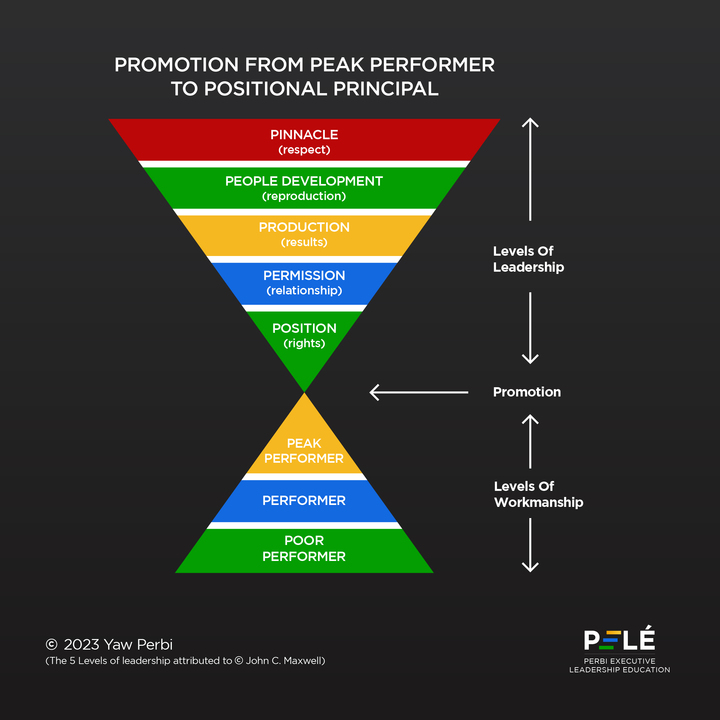
The Best Promotions are the Worst.
Here’s the worst thing about the best promotion. At one of my organizations, we recently had to let an excellent hire go. Come to think of it, we failed him. We failed him by promoting him.
You would think that all promotions are good but no. One of the worst kinds is being ‘elevated’ to become a leader just because you are an outstanding worker or producer. Working on stuff and excelling is very different from working with souls to excel. The reward for hard work is more work, weird yes, but the latter tends to be more mental work than manual —which most people find as more beneficial—also, more of working with people than working on things.
As one person shared about struggling with leadership upon her first promotion as a telco manager: “Within one month, I went from being the best programmer to the worst supervisor.” I’ve seen this happen to too many people in too many places. I grew up on the University of Ghana campus (both my grandfather and mother were professors there) and I would see time and time again fine lecturers promoted into leadership positions, from heads of department through deanship to vice-chancellorship and flail and fail. How many times have I said that a great chemist or erudite historian doesn’t necessarily make a great leader!
We do the same in the medical world, promoting top surgeons to head departments or if God doesn’t intervene, to head the hospital! When I was promoted to supervise the Military Polyclinic at the 37 Military Hospital in Accra, determining the doctors scheduling and all, in my opinion it was only because I wasn’t a bad doctor and had been around long enough. And no one gave me a minute’s training about leadership. Squat. Thank God I had been a private student of leadership for years prior.
It doesn’t start out as a bad thing; in fact, it is exhilarating at first for the recipient of the promotion. And the giver of the opportunity ordinarily also means well and feels good about it. But organizational leaders need to rethink the notion of making people supervisors, managers or leaders as a reward for diligent or even skillful individual technical work. It can backfire, seriously.
A STORY I CAN’T GET OVER
One of the most poignant illustrations of this phenomenon of worker/rewarded-as-leader is told by my mentor Bill George in his book ‘True North.’ It’s about the person who confessed upon her first promotion as a telco manager, “Within one month, I went from being the best programmer to the worst supervisor.” Here are some more details:
“It’s unbelievable how bad I was. I didn’t know how to delegate. When somebody had a question about their work, I’d pick it up and do it. My group was not accomplishing anything because I was on the critical path of everything. My boss saw we were imploding, so he did an amazing thing: He gave me every new project that came in. It was unreal. At 4:30 PM, my team would leave, and I’d be working day and night trying to dig through this stuff.
“Finally, I couldn’t take it any longer. I went to his office, stamped my foot like a 5-year-old, and said, “It’s not fairI have the work of 10 people:” He sad calmly, “Look out there. You have 10 people. Put them to work.” It was such a startling revelation. I said sheepishly, “I get it.”” [1]
If this person hadn’t eventually learned to lead people, she would never have made it to becoming president and CEO of the American Red Cross on June 23, 2008. Prior to that she had also held top management positions at AT&T Corporation and Fidelity Investments. She is a member of the board of trustees of Johns Hopkins University and the board of directors of DTE Energy.
This is Gail J. McGovern we’re talking about here, even recognized by Fortune magazine in 2000 and 2001 as one of the top 50 most powerful women in corporate America. Alas, not all of such stories that begin with such ‘good promotions’ end well, and even when they do, not without significant damage to many.
DIAGNOSIS OF LEADERSHIP FAILURE POST PROMOTION
It takes both a different mindset and skill set to move from being an excellent worker to being a good leader, let alone a great one. Yet we come to the world of work with both a mindset and skillset that ill-prepare us for leadership success. Even prior, we are socialized largely to excel as individuals. I concur with Bill George that this unpreparedness is attributable to our upbringing:
“…so much of our early success in life depends upon individual efforts, from the grades we earn in school to our performance in individual sports to our initial work assignments. Admissions offices and employers closely examine those achievements and use them to make comparisons. …As we are promoted from individual roles to leadership, we believe we are being recognized for our ability to get others to follow us…
“To become authentic leaders, we must discard the myth that leadership means having legions of supporters following us as we ascend to the pinnacles of power. Only then can we realize that authentic leadership is serving people… How else can they unleash the power of their organization unless they motivate people to reach their full potential? … Only when leaders stop focusing on their personal needs and see themselves as serving others are they able to develop other leaders.” [2]
ROAD MAP TO LEADERSHIP SUCCESS POST PROMOTION
If Maxwell’s 5 Levels of Leadership is anything to go by, then when one is promoted from the top echelons of the worker floor (Peak Performer/Worker Level 3 in diagram above), they only end up at Level 1 of leadership: Position. The lowest level of leadership—the entry level, if you will—is position. People only follow if they believe that they have to (otherwise you might use your powers of carrot and stick). If this leader takes the hint and invests in their leadership growth, they can move to Leader Level 2—Permission—which is based on relationship. At this level, people choose to follow because they want to.
You will notice that even what Gail was trying to get done at work, putting the 10 people ‘out there’ to work, is still only mid-level in the Maxwell scheme of things: Production. Good leaders know how to motivate their people to GTD – get things done! And getting things done is what Leader Level 3 is all about. But they’re only good; not great. Leader Level 4 — People Development—can be summed up in another word: Reproduction. One’s goal at this level is to identify and develop as many leaders as one can and investing in them to help them grow. Here (Leader Level 4), you’re producing people as leaders, not producing work through people (Leader Level 3).
The most challenging and highest level of leadership, Level 5, is the Pinnacle. According to Maxwell, it requires longevity as well as intentionality in investing one’s life into the lives of other leaders and organizations for the long haul (while growing yourself as lifelong learner all the while). People follow such because of who they are and what they represent. Their leadership gains a positive reputation, betters still, one has earned respect.
Note that Level 5 leaders develop Level 5 organizations. I will add that in the leader verses institutions debate—as to whether it is strong leaders or strong institutions we need to develop long-term—I would say that it takes Level 5 leaders to build the structures and systems that produce strong institutions. This is the realm of legacy. As a result, Level 5 leaders often transcend their position, their organization, their industry and perhaps even their nation.
And nothing accelerates leaders through these levels, from 1 to 5, like intentional coaching.
CONCLUSION
As you can tell already, it’s a long way from being the best worker to being a great leader. There is nothing more painful than a “highly capable individual” (as Jim Collins puts it) thinking that just because they’ve been a peak performer and ‘made it’ onto the supervision, management or leadership floor that they’ve got what it takes to run the ship. One’s productive contribution through individual effort in knowledge, skills and good work habits won’t cut it. As promoters, if we promote people and fail to plan a leadership growth path alongside that, we’ve inadvertently planned to fail them.
Congratulations on your promotion, but to ensure that dream-come-true doesn’t become a nightmare, and the reward a trap instead, you must be aware that it’s a floor and not the ceiling. Top floor workers’ triumphal entry through the golden portal of promotion only lands you as a ground floor leader. Welcome to Level 1 of Leadership: position. Just that.
References
[1] Bill George. True North: Becoming an Authentic Leader. Second edition; expanded and updated edition. Jossey-Bass, Hoboken, NJ, 2015, pg. 186-187.
[2] Ibid, pg. 185
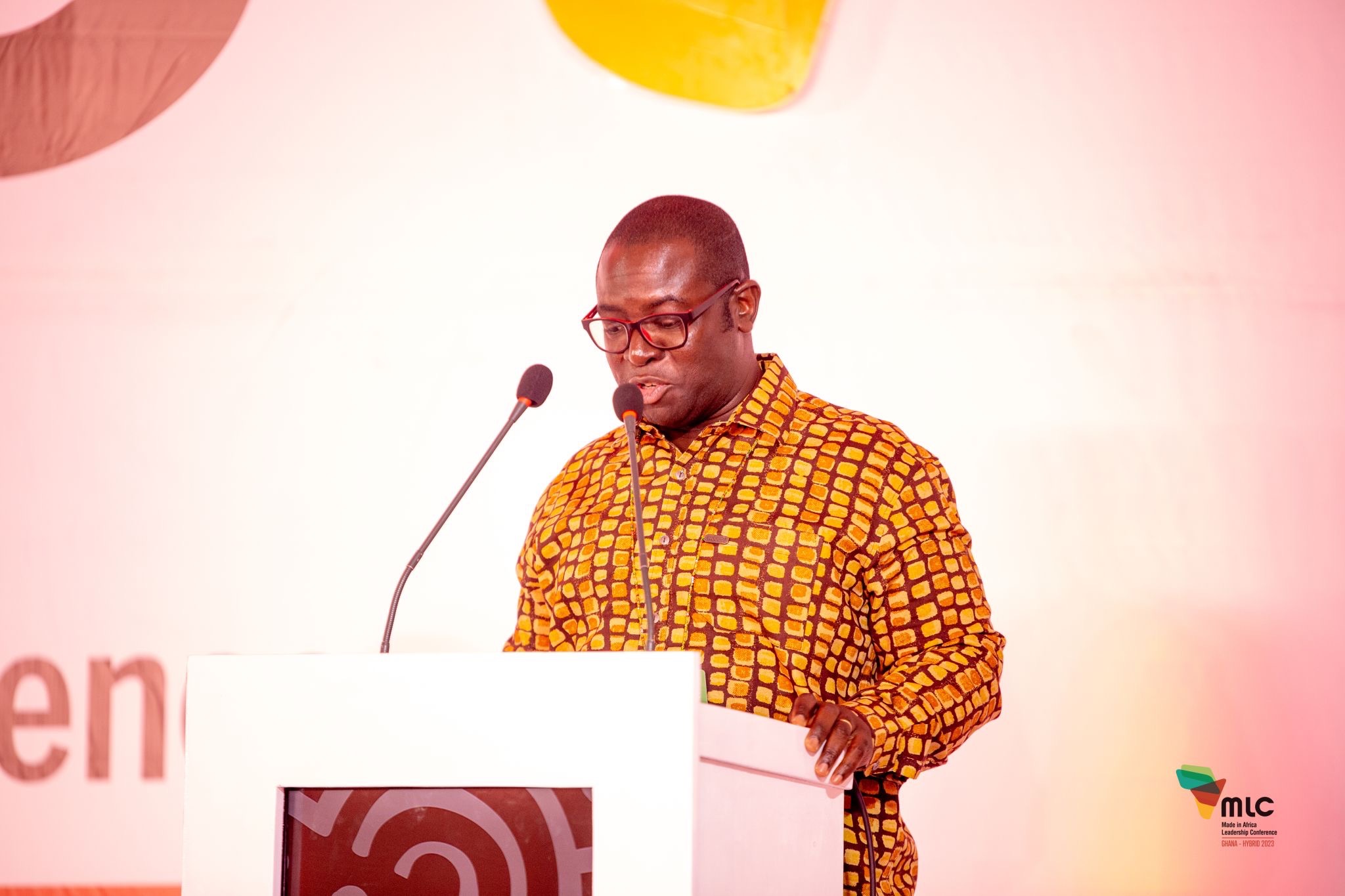
Sans Leadership–So Much to Lose, Too Much to Lose.
The following was shared as a TED-like talk to open the Made in Africa Leadership Conference by BCA Leadership on June 14 at the Marriot Hotel, Accra, Ghana.
My uncle died. My mom’s youngest brother. He came over to Ghana from the United States, where he had lived for decades, and fell ill. He died in the very hospital I worked in at the time. In fact, he died on my ward. But I can swear it wasn’t his disease that killed him. It was leadership, or rather the lack thereof. Leadership is too important for doctors not to have it.
Some of the most important things in life are not taught in school, like leadership. When some of my friends from university got into government I did exhort them: “Nobody taught us Jack about leadership. LEARN LEADERSHIP! CONTRACT COACHES! Leadership is not just caught; it is taught.” Did they listen? Ha!
Ironically, communal, national, continental or even global leadership, is a deeply person-al thing. It takes deeply transformed leaders to deeply transform society. Authentic leadership begins with aligning what goes on in a leader’s head and heart with True North. Leadership principles or True North are no respector of persons—red or yellow, black or white.
Two days from now, we will be officially launching the 20th anniversary celebration of The HuD Group, a holistic leadership organization started by nine young Africans in Accra. From one country in West Africa, it now has presence in 24 countries, on all six continents. Out of Africa to the Rest. From a former Rwandan refugee now in executive leadership in Uganda to a former child soldier in Sierra Leone now a high-ranking bank official in his homeland, to a Chinese-Canadian who we trained via Skype when she was an international medical student in Australia, a lot of transformation and impact has been achieved but in Ghana in particular I feel much of our gains have been eroded by not giving adequate attention to political leadership.
So today is the first of two important occasions this week where I will be drumming home this point with all my heart, liver, spleen and intestines: “Leadership is too important to leave it to politicians alone.” AND with 90% of African businesses being SMEs, creating 60-80% of our jobs and accounting for 40% of our GDP, what we do here at MLC this week for African leaders and African leadership is wildly important.
When two 14-year old stowaways from Guinea, Yaguine and Foday, froze to death in the landing gear of an Airbus 330 from Conakry to Brussels, they had on them a hand-written letter labelled: IN CASE WE DIE… to the Messrs. members and officials of Europe.
They said, among other things, “We have the honor and pleasure and great confidence in you to write this letter … we appeal to your solidarity and kindness for help in Africa. …we, African children and youth, ask you to create a great, efficient organization for Africa to allow us to progress. …we want to study and we ask you to help us in Africa to study to be like you.”
You should find and read the whole letter here—it will thaw and tear your heart. And that was 24 years ago. Has anything changed?
It’s time for Leadership Made in Africa that makes Africa work for Africans. BEFORE WE DIE. Yes we can, partnering and collaborating to reimagine and reform the Africa that we want! Twende! Let’s go! Let’s do this!
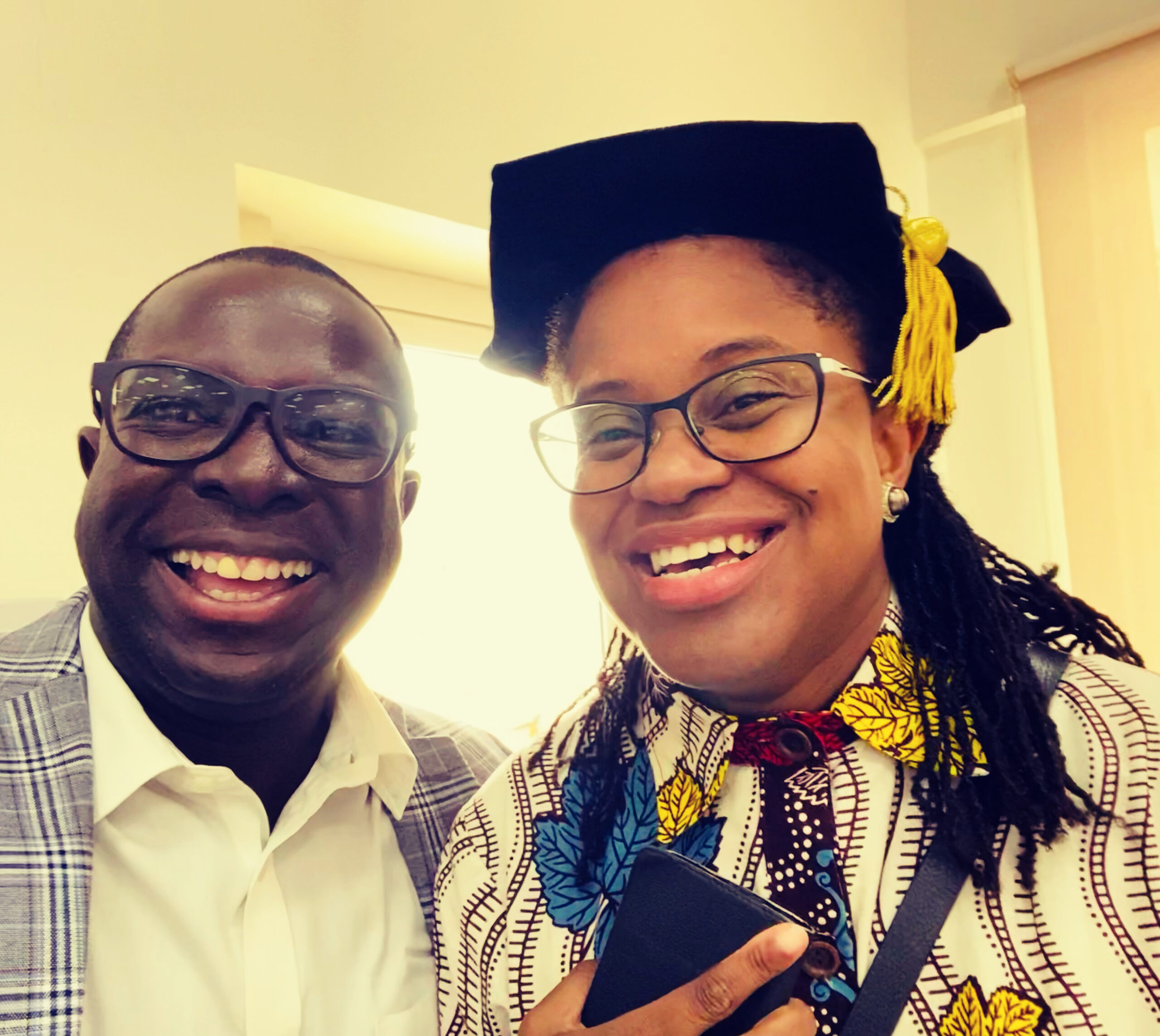
To Compete or To Complete? That is the Question.
Dr. G. Ayorkor Korsah (née Mills-Tettey) and I shared many hearty laughs at the VIP lounge after Ashesi University’s impressively inspiring commencement ceremony last Saturday, June 3, 2023. She is a Senior Lecturer in Computer Science and Robotics, and as department head, Computer Science & Information Systems, she was in her element dolling out degrees to deserving graduates. But we have a 28-year history of rivalry.
This wasn’t our first meeting. Nearly three decades ago, in 1995, we were impassioned opponents. Each of us was part of a trio representing our high schools in the semi-final of the Brillant Science and Maths Quiz on national television. Brillant was what it was called, yes, no typo there. That was the name of the blue bar soap by Unilever that was the title sponsor OF the competition. Much has changed since then. National Science and Maths Quiz, it’s now called. Very appropriate. Prime Time was in its prime, producing this feast of brilliance. They seem to have kept their shine, now in the hands of the next generation of Mensah-Bonsus.
THE LADIES WERE LOVED
Our battle was held and filmed at the Great Hall of the University of Ghana, Legon. Technically, this should’ve been a ‘home match’ for me, in my own territory, since the venue was barely a mile from my home, No. 14 Legon Hill. But no. Everyone was rooting for the über smart all-ladies team from Wesley Girls. Can you blame them? Even now they would be a delight; how much more in those medieval ages of STEM in Africa. Come to think of it, the now-ubiquitous ‘STEM’ term for Science, Tech, Engineering and Math had not even been cooked yet. The STEM acronym was only introduced in 2001 by scientific administrators at the U.S. National Science Foundation (NSF). Girls in Science were hallowed in the 1990s. Even I admired them, but my mission was to win for my school. No distractions.
My Achimota School team was made up of three boys, the three musketeers, although we are the first co-ed public school in the country as far back as 1927 and had science girls who rocked. Needless to say, the competition against the Cape Coast chics was fierce. We had both earned our way to the penultimate in the southern zone.
We inflicted what is arguably the most painful defeat Geyhey has ever suffered at the science and maths quiz. It was veeery close. Even the camera crew were downcast when the celebrity girls lost, visibly disappointed. We made enemies that day. Some couldn’t even hide it.
SOME OTHER LADIES, SOME OTHER TIME
But as it turned out: it’s not the whole word that hated us. Some girls loved us. I was the recipient of umpteen letters of adulation from young ladies all over the country. They happily introduced themselves, sometimes with atrocious photo inserts, and poured their admiration on me—about my intellectual prowess among other things which will distract from the point of this article. Now I’m not sure all of it was appropriate for seventeen.
Even the Weygeygey girls became friends later when things cooled down. After all, “if you can’t beat them; join them,” as they say. That’s how I ended up with the various names in that year group, some of whom became colleagues at the University of Ghana Medical School, as friends. Zanetor Rawlings, first daughter of the then Flight Lieutenant-retired president of Ghana, even visited me in Achimota School at some point. Like me, she would later pursue Medicine too; but in Ireland. I once warned her at a party in Nana Ama Barnes’ home on Legon Campus that if she dared ended up schooling outside Ghana after her revolutionary dad had messed up (yes, teenagers are fearless!) our educational system so, I would be really mad. I guess I’m still mad. A little. She has since returned and been admiringly serving as a Member of Parliament for the Korle Klottey constituency of Accra. In any case, seeing affliction metted out to a certain young man who hang around her at the time, involuntary hair-shaving at the Osu Castle and all, it might have been providence that I stayed at arm’s length.
NOTHING BUT ADMIRATION AND RESPECT
But I digress. Back to the main lady Gertrude, as we called Ayorkor then. She was and is brilliantly brilliant. We only beat her team by strategy and a stroke of luck. Call it grace, if you like. Those girls were on fire! Ayorkor, after 1995, went on ahead to pack up four degrees including two Bachelor’s, a Master’s and a PhD. Dr. Korsah grew up in Ghana and Nigeria, and as a child, she wanted to be an astronaut and an engineer. Ayorkor didn’t join the majority of us that continued to Ghanaian tertiary institutions but went to Ivy League Dartmouth to major in engineering. She attended Carnegie Mellon University for her doctoral work in computer science, obtaining a PhD in 2011.
Ayorkor Korsah is all-round passionate about the artificial intelligence (AI), robotics, algorithms, and programming courses she teaches on the Ashesi Hill but so is she about expanding robotics education in Africa for every Kofi and Amma. That’s why she co-founded the African Robotics Network (AFRON) over a decade ago with a robotics professor at the University of California, Berkeley, Ken Goldberg.
Anyele my wife and I really found a common sweet spot with Ayorkor last Saturday when we coincidentally discovered our common passion for literacy. Being someone who has shared with the BBC how humans and machines can collaborate and combine their strengths, Ayorkor once, over a dozen years ago, experimented with an automated reading tutor in the quest to improving child literacy in Africa. She has a paper on it in the Information Technologies & International Development journal, vol. 6 no. 2, 2010. We are keen to collaborate with her and her bright Ashesi students at our EdTech company, Perbi Cubs, for bigger, brighter and better outcomes for Africa’s precious cubs.
NOT A BOUT
Ayorkor beat me to full-time lectureship and will most likely beat me again to professorship (she so deserves it). But as she, Anyele and I continued our hearty conversation, including recruiting some of her students to practice what she teaches at our Edtech, we got to know she has two little ones of her own, younger than our last two. And we have seven. We beat her to that, fair and square. She even just married, in light of our sixteenth year, and transitioned from Mills-Tettey to Korsah.
Enough of these beatings! Really we’re all grown now and know, for sure, that life isn’t a race against each other. Nor is it about a bout. Rather than compete like we did in our teens, we now learn to complete one another in our adult years for the greater good—the Good Society. In lockstep, we will keep producing holistic emerging leaders, formally like Dr. Ayorkor Korsah does with degrees at Ashesi and informally and semi-formally like I do at The HuD Group. Ashesi turned 20 last year and we turn the same this year. Patrick Awuah, our mutual founding friend of Ashesi will be keynoting at The HuD Group’s presser on June 16, 2023. I was telling him that maybe I should’ve started a Uni too instead of going the CSO (Civil Society Organization) route. But nay, to each one their own. And we compliment, collaborate and complete each other as we all strive hard and long towards the Africa we want.
And as if by divine design, one of the Presec folks who beat our Achimota team in the finals of the Brilliant Science and Math Quiz 1995 southern zone competition ended up as my Biological Sciences course mate and even my room mate at Legon Hall, University of Ghana. We both competed for the few slots at med school available to our Leviathan-sized cohort and made it–from the same room!
There’s a time to compete and a time to collaborate. For me, to complete and not compete today as professional pals and fellow family framers of the same generation is a no-brainer. Here’s to answering life’s real tough questions and quizzes together. Congratulations, Dr. Ayorkor Korsah, for continually raising the bar.
Post script
And oh, Anyele and Ayikai, Ayorkor’s engineering whiz kid of a younger sister, have been tight friends for a quarter-of-a-century, going way back to their Wesley Girls days.
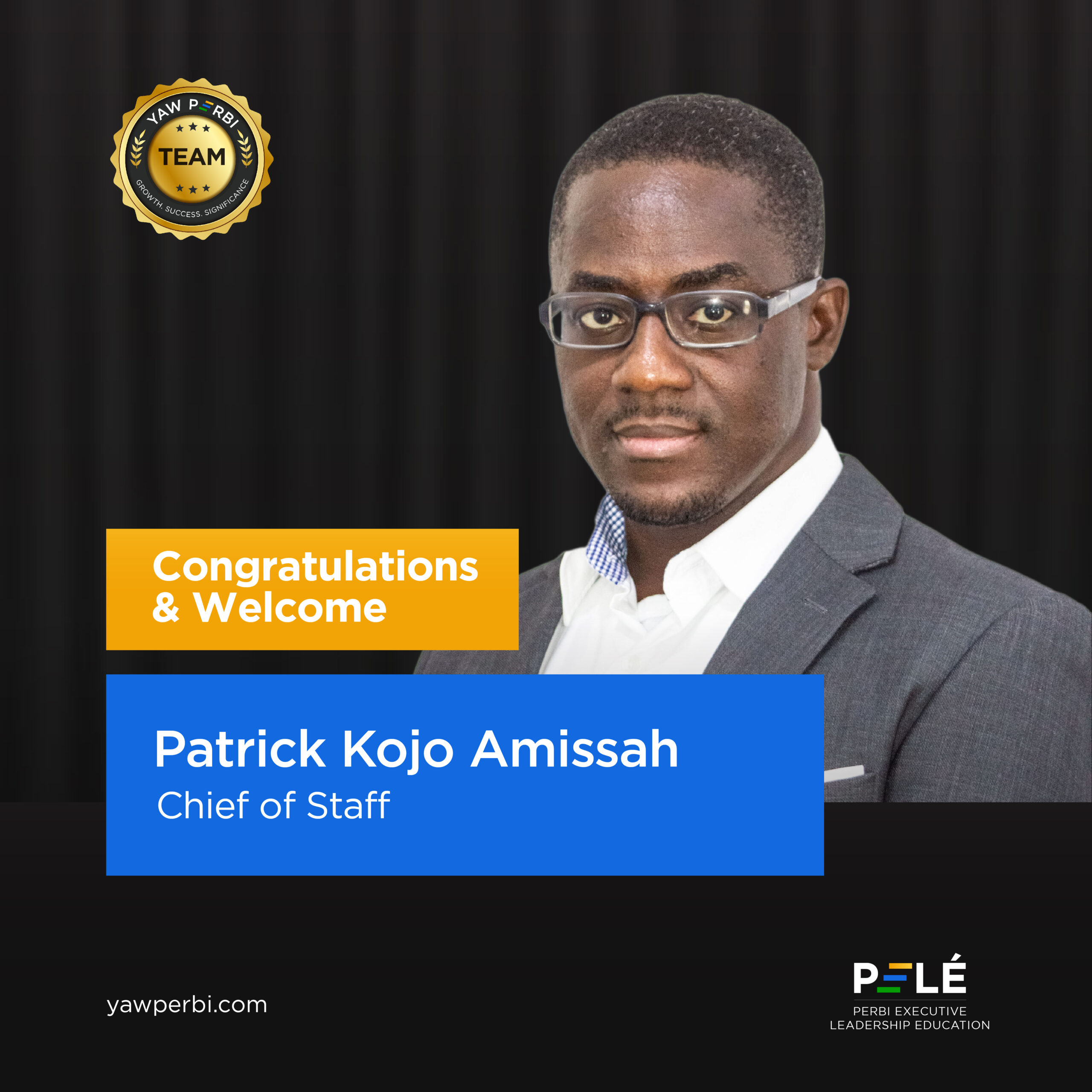
Perbi Executive Leadership Education (PELÉ) Gets New Chief of Staff: Introducing Patrick Kojo Amissah.
Perbi Executive Leadership Education (PELÉ) and allied Perbi establishments heartily welcome Mr. Patrick Kojo Amissah as our new Chief of Staff. Kojo Amissah is a versatile professional with experience in organisational leadership, team and operations management. He believes in striving for excellence and critically analysing problems with the goal of coming up with practicable, innovative solutions. He has worked in the educational, publishing and financial sectors.
Kojo’s previous work experience includes co-managing a start-up (Catalyst Learning Limited) and growing it into a sustainable firm. His responsibilities included structuring and establishing different roles and tasks, recruiting and training staff, establishing systems, managing finances, and planning and executing projects. For over three years he led in the development, printing and distribution of over five million copies of textbooks and workbooks to various schools across Ghana. He managed communications and relations with foreign printing firms including negotiating prices and planning the delivery of printed books.
We are convinced that the skills and knowledge gained from these experiences will enable him to quickly adapt to the demands of the Chief of Staff role at PELÉ and to exceptionally perform the outlined responsibilities. Mr. Amissah possesses good leadership and team management skills which he honed while serving as Team Leader, Curriculum Development and as Chief Operations Officer. Watch out for PELÉ’s online leadership courses to be launched by mid 2023.
Mr. Amissah developed important team building and conflict management strategies as he directly and indirectly managed over thirty individuals performing different roles. He also possesses good negotiation skills and valuable stakeholder management experience. At PELÉ, we believe these are important transferable skills that will aid his interactions with staff of Perbi Executive Leadership Education and affiliated organisations like Perbi Cubs, Kwiverr, The HuD Group, Send Africa, Adeshe Real Estate, ISMCanada, PAIS, Africa to the Rest, BCA Leadership, the Lausanne Movement etc. Kojo takes the baton from Ashesi cum University of Warwick alumna Araba Andoh who laid pioneering tracks for the role.
According to Kojo, “I am highly motivated to serve in the role because it provides the opportunity for me to put my unique mix of experience in leadership, operations management and publishing to use in the worthy cause of growing executives to make significant impact in society. I also believe that working directly with an accomplished leader and entrepreneur like Dr. Yaw Perbi is an unmissable opportunity to grow professionally.” Among Kojo’s first tasks will be helping to host the incoming BCA Leadership Made in Africa Leadership Conference, launching PELÉ’s avant-garde DeepLEAD online leadership course and providing operational support for both The HuD Group’s 20th anniversary activities and Kanéval by PerbiCubs/UNESCO Accra World Book Capital. In commemoration of the latter, Dr. Yaw Perbi seeks to (re)publish all his two dozen books.
We welcome Mr. Kojo Amissah at this inflexion point where YAW PERBI is transitioning to PELÉ (Perbi Executive Leadership Education) to maximize team potentials beyond the availability and capability of Dr. Yaw Perbi as an individual. PELÉ by YAW PERBI is an Executive Education firm that offers authentic and customized relationships and resources to C-Level executives to grow personally, succeed professionally and become significant societally. PELÉ’s vision is to see a flourishing global ecosystem of authentic leaders characterized by growth, success and significance.
Kojo wields a Bachelor’s degree from the University of Ghana and an MBA from Coventry University. He is a practising catholic. Akwaaba, Kojo. Bienvenue, Monsieur Amissah. Here’s to your own growth, success and significance. Together, let’s carpe diem and make a dent in the universe!

